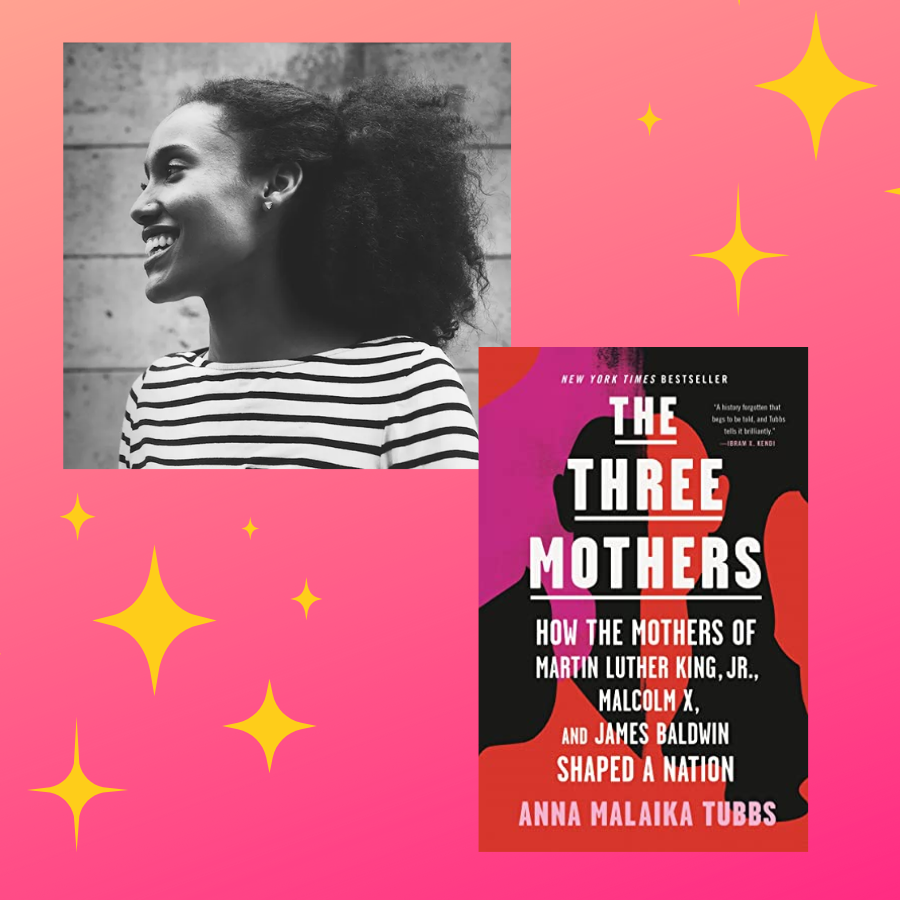Background
The Three Mothers: How the Mothers of Martin Luther King, Jr., Malcolm X, and James Baldwin Shaped a Nation by Anna Malaika Tubbs was our book of the month for November 2022. It is the product of years of in-depth research and determination to document these lives that have been often overlooked in American history. The author tells their stories through the historical context of which they are an influential and inextricable part. Berdis Baldwin, Alberta King, and Louise Little quite literally birthed movements.
As we follow the lives of Lousie, Alberta, and Berdis, we get to see the unique foundations that made their sons the influential leaders they grew up to be. For example, Berdis Baldwin was a creative woman who loved writing, but never wrote a book of her own. However, she fiercely encouraged her son James in all his creative endeavors throughout his life. It’s enough to make one wonder– would we have the timeless work of James Baldwin if not for his mother?
Analysis & Discussion with the Author
Spread over the lives of the women, Tubbs manages to cover 100 years of American history from the perspective of Black women, from the 1890’s when Louise Little was born to the 1990’s when Berdis Baldwin was laid to rest. At the beginning of each chapter, Tubb included epigraphs from thinkers of the historical time period she focused the book on. These quotes juxtaposed each other; one was most often from a civil rights activist, and the others were from well-known figures of the time who relied on white supremacy to uphold their positions in society (including Margaret Sanger.) With these excerpts, we are given a multi-faceted look into what the time period truly looked like, rather than the one-sided, racially-skewed version traditionally served, especially in the U.S. school system.
Of these quotes, the author said: “…this book is really a fight between dehumanization and how Black women humanize ourselves and how we create life despite others denying that life to us.” She went on to say that she chose to include these quotes to demonstrate the fight for Black women to humanize themselves during each chapter/decade.
Tubbs did not shy away from graphic descriptions when discussing the violence against Black bodies. She covered incidents that were more widely circulated, like the murder of Emmett Till, and some that most have never heard of, like a 1919 attack on an unnamed Black woman and her 3 month old baby.
When asked about this in our member discussion, Tubbs said, “I didn’t want to hide from those moments in history that were real and deserve more attention, especially when it comes to thinking about the atrocities that Black women were subject to. We don’t usually hear about those in our retelling of Black history; it is quite often focused on Black men.” She wanted readers to feel the same kind of shock and disgust that these women would have felt as they experienced news stories that came out during their time.
Another thing that came up for me while reading, and then later came up in the member Q&A with the author, was the fact that Tubbs didn’t remind readers about the names of the women or who their sons were. We had to keep flipping back to memorize their names in order to consume the book. The author confirmed that this was a purposeful stylistic choice that pushed readers to learn what has historically been not widely circulated information.
Final Thoughts
Right after I started the book, I knew that The Three Mothers would become an integral part of my feminist home library. The stories of the three women were grounded in the work of Black feminists (particularly Audre Lorde), specifically in the areas of dehumanization, resistance, and motherhood. In each of the lives of the women, we see that, whether intentional or not, they all operated from a feminist ideology based on liberation and equality for all. Their approaches to what they believed in and how they raised their children was different, but ultimately it can be argued that they were all feminists.
This is a book for everyone. To understand our history, we need to learn from the most marginalized. Without their perspective, we don’t have a full or accurate picture. Tubbs offers us a whole portrait here, based on thorough research, passion, and years of dedication.
Anna Malaika Tubbs has some amazing projects in the works, including another book. You can find her at her website, on Instagram, and Twitter.

